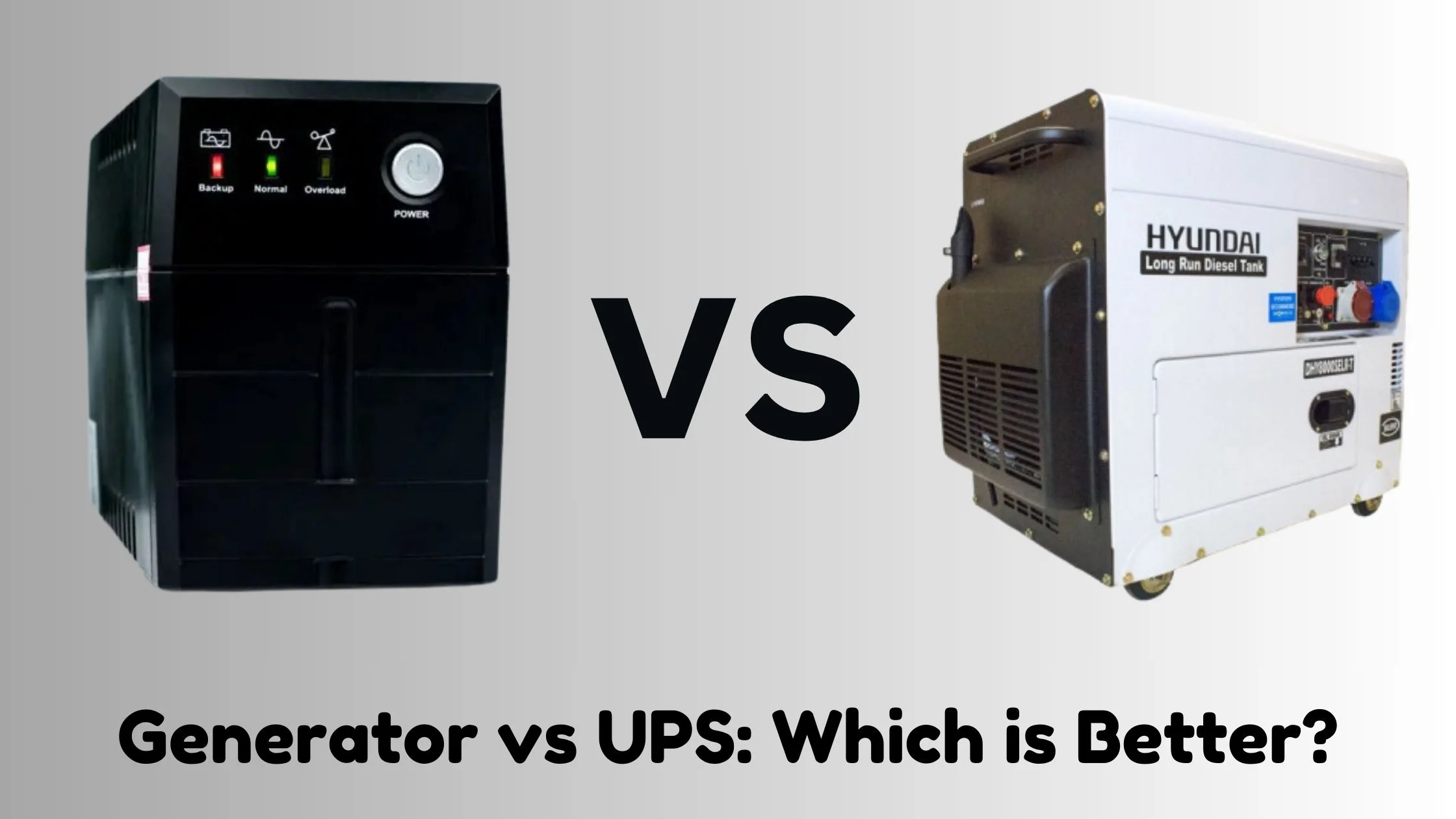In today’s world, uninterrupted power supply is crucial for both homes and businesses. Whether it’s for essential appliances at home or critical systems at work, having a reliable backup power solution is a must. Two common options are generators and uninterruptible power supplies (UPS). Each has its advantages and disadvantages.
In this blog, we will compare generators and UPS systems to help you determine which is better for your needs.
Understanding Generators and UPS
What is a Generator?
A generator is a device that converts mechanical energy into electrical energy. It can run on various fuels, including diesel, gasoline, natural gas, or propane. Generators are ideal for providing backup power during extended outages. They are capable of powering multiple appliances simultaneously, depending on their capacity.
What is a UPS?
A UPS, or uninterruptible power supply, is an electrical device that provides emergency power to connected devices in the event of a power outage. It contains a battery that supplies immediate power, ensuring that your electronics continue to operate without interruption. UPS systems are commonly used to protect sensitive equipment, such as computers and medical devices.
Generators vs UPS
Power Source and Operation
- Generator: Generates electricity from a fuel source, often requiring time to start up and reach full capacity.
- UPS: Uses an internal battery to provide instantaneous power, ensuring no downtime.
Duration of Power Supply
- Generator: Can run for several hours to days, depending on fuel availability and capacity.
- UPS: Typically provides power for a limited duration (from a few minutes to several hours), enough for short outages or to safely shut down devices.
Power Output
- Generator: Can handle high loads and power multiple appliances simultaneously.
- UPS: Best suited for powering essential equipment with lower power requirements, like computers and networking devices.
Noise Level
- Generator: Generally louder, producing significant noise during operation.
- UPS: Operates quietly, making it ideal for home and office environments.
Cost and Maintenance
- Generator: Higher initial investment and ongoing maintenance costs, including fuel and regular servicing.
- UPS: Typically lower upfront cost, but battery replacements and maintenance are necessary to ensure functionality.
When to Choose a Generator
Ideal Use Cases
- Extended Power Outages: Generators are ideal for prolonged outages, especially in areas prone to long-term outages.
- Outdoor Events: Perfect for providing power at events or construction sites where electricity may not be available.
- High Power Demands: Best suited for situations where multiple appliances or heavy machinery need to be powered simultaneously.
Advantages of Generators
- Longer Run Time: Can provide power for extended periods, depending on the fuel source.
- Higher Capacity: Capable of powering large devices like HVAC systems, refrigerators, and more.
When to Choose a UPS
Ideal Use Cases
- Sensitive Electronics: Essential for protecting computers, servers, and medical equipment from power interruptions.
- Short Outages: Useful in areas with frequent short power cuts.
- Data Protection: Ideal for ensuring data integrity during brief outages, allowing time for safe shutdowns.
Advantages of UPS
- Instant Power Supply: Provides immediate power, eliminating any downtime.
- Data Protection: Protects sensitive data and equipment during outages.
Conclusion
Choosing between a generator and a UPS largely depends on your specific needs. If you require a backup solution for prolonged outages, high power demands, or outdoor use, a generator is likely the better choice. However, if you need immediate power for sensitive electronics and prefer a quieter, more compact solution, a UPS is ideal.
Ultimately, many households and businesses find that having both a generator for extended outages and a UPS for critical equipment is the best way to ensure a reliable power supply.
Frequently Asked Questions
Can a generator be used as a UPS?
While they serve similar purposes, a generator cannot replace a UPS. Generators provide power after an outage occurs, while UPS systems provide immediate power during an outage.
How long can a UPS run during a power outage?
The runtime of a UPS varies by model and load. Most UPS systems can provide power for 10 minutes to a few hours, depending on the connected load.
Are generators safe for indoor use?
Generators should never be used indoors due to the risk of carbon monoxide poisoning. Always operate them in well-ventilated outdoor areas.
How often should I maintain my generator or UPS?
Generators should be serviced regularly, typically every six months to a year, while UPS systems may require battery replacements every 3-5 years, depending on usage.
Can a UPS power a refrigerator?
Most UPS systems are not designed to power high-wattage appliances like refrigerators. They are best suited for electronics and small appliances.


